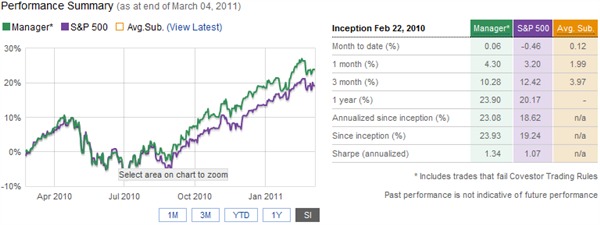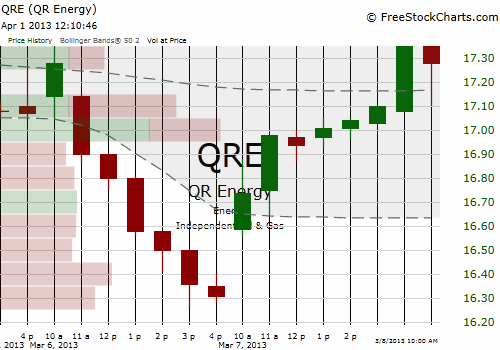Disclosure: Opened a short position in ASG in my Long/Short Opportunistic model on September 15
An investor’s performance can come from market exposure or selection of specific securities. In recent months, given the volatility and increased correlation of market sectors, many if not most investors’ performance figures have significantly derived from market. Investors who believe they possess some talent for security selection yet lack a crystal ball for the mood of the day to day market have to largely look at periods like this, where performance primarily derives from overall exposure, as “noise”… and continue to focus on their primary competency, security selection.
Is it frustrating to have down months? Yes, absolutely. Do they change my investing discipline? No.
At the single security level, discipline does sometimes require a dramatic change in perspective.
Through September 14th, Liberty All-Star Growth Fund (ASG) shares appeared highly probable near term beneficiaries from forces of shareholder activism. Without any reason to perceive the manager as adding value historically (or in the future), it embodied a high conviction, liquidity play thesis. The Board and manager which had long forsaken shareholder value needed votes from a very large shareholder block at Karpus Investment Management. All signs suggested that a large-scale tender offer or open-ending event was imminent. This drove the NAV discount below 5%.
On September 15th, Karpus Investment Management disclosed a standstill agreement with the parties behind ASG (and USA). The standstill agreement (SEC filing: https://www.sec.gov/Archives/edgar/data/786035/000104870311000156/exhibit1.pdf) arranges for Karpus’ private sale of nearly $11 million of ASG to DST systems (parent company of ASG and USA’s advisor: ALPS Advisors Inc.) at a favorable price.
The shares are being bought by DST Systems, not by the fund company itself, for the NAV accretion of all shareholders. Presumably, those shares will now create a voting block closely aligned with the interests of the entrenched advisor, blocking future activist advances. Bulldog, also a large ASG shareholder, would appear well reasoned now to try and affect a similar private exit.
Karpus’ exit from ASG (and to a far lessor extent, USA shares) is financially favorable to Karpus. The effect on other ASG shareholders (and to a far lessor extent those of USA) is dramatically different. The average shareholder may interpret the transaction as quite surprising in constrast to what Karpus previously filed (https://www.sec.gov/Archives/edgar/data/786035/000104870311000152/asgprec14a.htm). ASG is now a prime example of an unsavory Closed-End Fund that, to put it mildly, is a value trap.
Where does the market valuation for ASG and USA shares go from here? Peers may be relevant. Similar voting blocks exist in shares of highly discounted funds like Boulder Growth and Income (BIF). Also, Equus Total Retun (EQS) historically was the subject of a similar private transaction. As of September 14th, ASG traded at a 4.63% discount to NAV. BIF and EQS traded at 18% and 43.2% discounts respectively. (source: CEFConnect.com – view ‘Pricing History’ here http://www.cefconnect.com/Details/Summary.aspx?ticker=ASG)
Different parties have alternate views of private transactions. Is it capitalism? Is it greenmail? Is the Advisor of a Closed-End Fund frontrunning its own fund? Different opinions make little difference. So long as regulators allow such activity, it will from time to time exist. I personally believe it sacrifices the long term interests of each party for short term financial interests. Mine is a less commonly held conclusion than the adverse effect such transactions have on the average investor, or confidence in the governance of American companies.
At any rate, editorial conclusions come from my heart. My brain told me to sell ASG and USA today (9/15/11). Such involves my own investment discipline. That is all I have control over.





